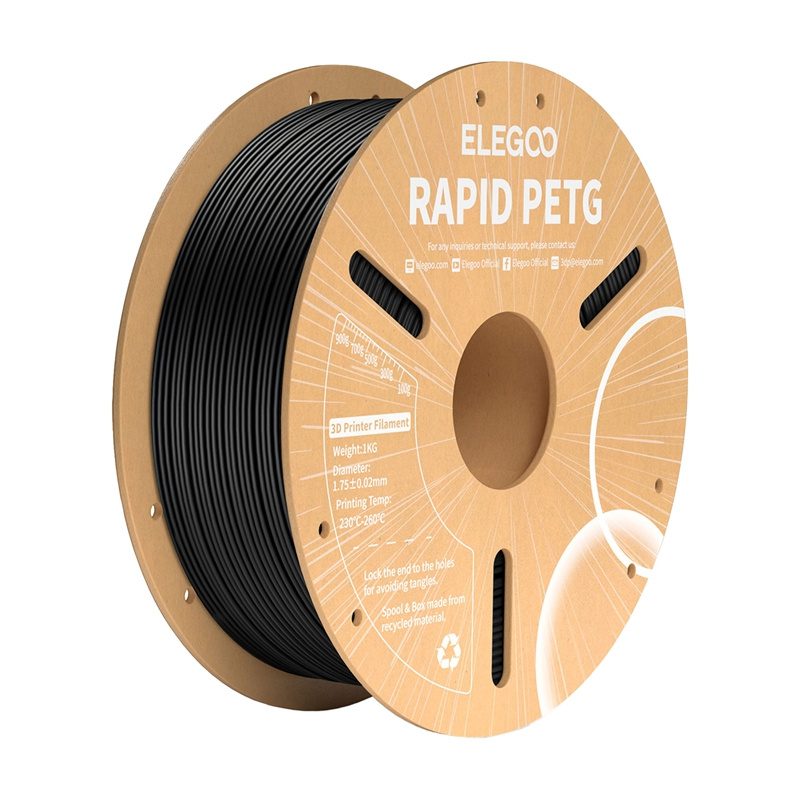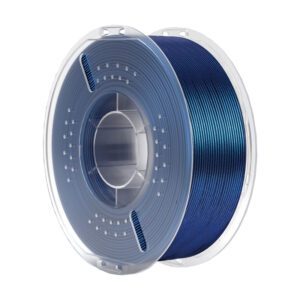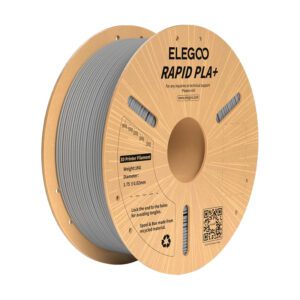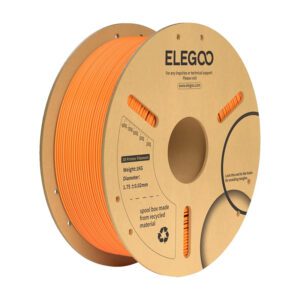ELEGOO Rapid PETG Filament (Black)
kr.203 við MVG
281 in stock
Description
ELEGOO Rapid PETG Filament (black)
ELEGOO Rapid PETG (polyethylene terephthalate – a long-lasting plastic modified for high-speed printing) filament in black is designed to print at speeds of up to 600 mm/s – without compromising quality. Thanks to its good fluidity and low susceptibility to shrinkage, the material produces aesthetically pleasing models without warping even on demanding projects.

Durability for everyday use
Rapid PETG combines the ease of printing known from PLA (polylactide – a biodegradable plastic based on plant starch) with durability similar to ABS (acrylonitrile-butadiene-styrene – an impact-resistant plastic commonly used in electronics and household appliances). The filament works well in utility projects that need to withstand pressure, shock or heavy use.

Hassle-free handling
The material is wound evenly and carefully inspected, reducing the risk of tangling. The spool, made from recycled materials, has been vacuum-packed with a moisture absorber to protect it from dust and water. Rapid PETG fits most FDM 3D printers (Fused Deposition Modeling – a technology in which plastic is melted and applied in layers).

General
| Manufacturer | ELEGOO |
|---|---|
| Model | 50.203.0216 |
| Color | Black |
| Weight | 1 kg |
Recommended print settings
| Drying settings before printing | 70 ± 5 °C |
|---|---|
| Ambient temperature and humidity | ≤ 70°C, ≤ 20% relative humidity (store with moisture absorber) |
| Nozzle temperature | 240-270 °C |
| Table temperature (depending on printer and surface) | 65-75 °C |
| Type of working surface | Textured PEI (polyetherimide – a durable, adherent material used as a base for 3D printing) or other compatible surface |
| Printing speed | Less than 600 mm/s |
Physical properties
| Density | 1.29 g/cm³ |
|---|---|
| Melting point | 216 °C |
| Deflection temperature under load | 72 °C |
| Softening temperature (Vicat test) | 70 °C |
Mechanical properties
| Tensile strength (XY – measurement in the horizontal plane of the print, where the material is strongest) | 42 ± 2 MPa |
|---|---|
| Elongation at break (XY) | 8,9% ± 1,5% |
| Bending strength (XY) | 68 ± 2 MPa |
| Bending modulus (XY) | 2097 ± 173 MPa |
| Impact strength (XY) | 87.6 ± 4.2 kJ/m² |





